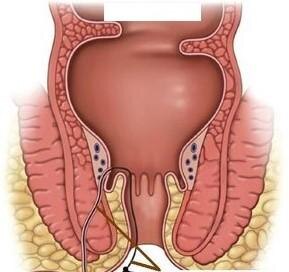Ksharasutra treatment is a form of Ayurvedic surgical intervention used primarily for the management of anorectal disorders such as hemorrhoids (piles), fistula-in-ano, and fissures. It involves the application of a medicated thread called Ksharasutra, which is prepared by soaking a thread in various herbal extracts and alkaline substances like Apamarga Kshara (ash of Achyranthes aspera) and Snuhi Ksheera (latex of Euphorbia neriifolia). This specialized thread possesses potent medicinal properties that aid in tissue healing, necrotizing unhealthy tissues, and promoting healthy granulation.
The procedure of Ksharasutra treatment begins with the proper identification and localization of the diseased tissue, followed by careful insertion of the Ksharasutra thread into the affected area. The thread is left in place for a specific period, during which it gradually cuts through the unhealthy tissues, promotes drainage of pus, and stimulates the growth of healthy tissue. Regular changes of the Ksharasutra are necessary to ensure the effectiveness of the treatment and prevent infections. Ksharasutra therapy is known for its minimal invasiveness, reduced recurrence rates, and relatively shorter recovery periods compared to conventional surgical interventions.
One of the key advantages of Ksharasutra treatment lies in its ability to address the root cause of anorectal disorders by targeting unhealthy tissues while preserving the healthy surrounding structures. Moreover, being an Ayurvedic procedure, it emphasizes holistic healing by incorporating herbal medicines that possess anti-inflammatory, antimicrobial, and analgesic properties. Despite its effectiveness, Ksharasutra treatment requires expertise and precision in application, and patients undergoing this therapy should follow post-procedural care instructions diligently to optimize outcomes and minimize complications.

